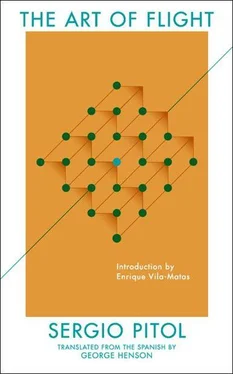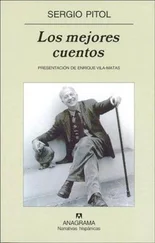In The Court of Carlos IV , the war between the dramatic schools is ubiquitous and permanent. The same happens with the comediantes ; a sworn enmity reigns between those from the theater of Caños de Peral, those from the de la Cruz, and those from the del Príncipe. In the Palace, something worse is taking place: the fight to the death between the supporters of the Crown Prince and those of his royal parents. The majority of the courtiers are loyal to the Prince’s cause, while the group favorable to the King and Queen diminishes. The palace residents, both those of the noble floors as well as those on the lower floors, are protagonists of an internal struggle. Intrigue flourishes everywhere; the hatreds are Spanish, that is, frightening; only blood seems to be able to appease them. Not long after this Episode begins we meet Lesbia and Amaranta at the dinner of Pepa González; upon their arrival they pretend to be on good terms, but the allusion to the palace dispute is enough to cause the masks to fall and the hatred to present itself in its fullness.
The genre of the historical novel that Galdós writes often acquires an antiheroic tone. The characters are never the noteworthy protagonists of history, but rather everyday individuals who, for some reason, are positioned at a given time beside the noteworthy and are witness to their misfortunes. Important historical events occupy much less space in these narratives than human conflicts. The established interrelationship between real and fictional characters demands of Galdós a special novel structure, to which he must have arrived by pure instinct. The architecture of some of the Episodes is superior to that of his thesis novels written during the same period— Doña Perfecta, Gloria, The Family of León Roch —in which the stories possess a prefabricated and stiff quality, and where the action is reduced to a succession of almost always predictable scenes. In the majority of the National Episodes , the historical event is known only through the reflection projected onto the social swarm. Often that reflection illuminates incidental, almost faceless, characters who in a few sentences lend the requisite accuracy or inaccuracy to, and pass judgment on, the historical event; that participation, however, gives them a momentary face before returning to the shadows. Thanks to that wonderful institution known as the tertulia , the uniquely Spanish version of the salon , which is as vibrant as or more so than the street, history is reflected every night through a prism of a thousand faces. Everyone expresses and maintains an opinion, unleashes his passions, expresses his truth in a violently biased manner according to his stake in it, until suddenly all that remains of that historical event are words rendered unintelligible from constant rumination, quarter or half-truths, distorted shadows of great figures, faces in chiaroscuro, the suppuration of tumors of a society whose spokesmen have been, in appearance only, selected at random.
In addition to the conspiracy present in The Court of Carlos IV , there is another rather blurred event kept in the background: the march of Napoleon’s troops into Spanish territory, an event that will condition the ten Episodes of the First Series in which Galdós proposes to give us the terrifying and exciting image of French intervention in Spain and the heroic reconquista of its sovereignty won by the Spanish people. Notwithstanding the magnificent epicness of the subject, the author seems to revel in an exaggerated lack of urgency in order to approach any historical record. Only from the twelfth chapter of The Court on do we witness Gabriel Araceli enter the Palace — that is, the court of Carlos IV. Throughout all the previous chapters, we have known the exacerbation of popular passion for the Prince, the general repudiation of the King and Queen and the immeasurable hatred for Godoy, the Prince of Peace, Prime Minister of the Kingdom, and favorite of the Queen. Fernando is vested with all conceivable virtues, and the King and Queen with vices and defects in abundance, and Godoy with all the ills of the troubled kingdom. Whether in the royal premises, the palaces of the nobility, or Madrid’s most ramshackle cottages, the people yearn for change. Fernando’s popularity is able to withstand all attacks. Once the conspiracy is discovered, and the Prince faces a possible death sentence, that popularity is transmuted into worship. After having confessed his participation in the frustrated crime, begged forgiveness from the King and Queen, sworn vows of repentance, and shamefully denounced several of his friends as the true conspirators, no one in Madrid is able to believe the news. In the mind of the people, there can be only two possibilities: either that ignoble confession bears at the bottom a forged signature or, if it is authentic, it must have been extracted from the barrel of a gun pointed at his chest. In this way, Fernando adds to his many honors already won another of overwhelming force: martyrdom. The news of the advance of French troops fills the Madrileños with joy; everyone assumes that Napoleon’s intention is to rescue the Prince from the hands of his executioners and place the crown on his brow.
The morning that the news of the military invasion spreads, Araceli has gone out shopping for his mistress. Hans Hinterhäuser notes that the vitality of Galdosian characters crystallizes in not only an aesthetic but also a moral category. Gabriel’s morning walk amply demonstrates this. Each of the acquaintances he encounters is convinced — as if having heard it from the most reliable of sources — that Napoleon and his myrmidons are advancing with the purpose of ridding Spain of all its woes. The dialogical carnival takes place, the triumph of heteroglossia; Galdós grants his creatures all the space they require, giving each of them a unique and unmistakable voice to express themselves freely. Both the National Episodes and the so-called Contemporary Novels share attributes that Bakhtin identifies in Dostoevsky when coining the terms polyphony and heteroglossia. “A plurality of independent and unmerged voices and consciousnesses, a genuine polyphony of fully valid voices is in fact the chief characteristic of Dostoevsky’s novels.” 15The novels of Galdós’s early period, written at the same time as the first two series of Episodes, represent, on the other hand, polyphonic negation; the protagonists do not participate of their own will, but rather recite a role dictated by the author. They are divided sharply into black and white, according to their political and religious convictions. The author manipulates them unscrupulously and does not allow them to develop. In the Episodes, however, perhaps because he considers them minor works, mere exercises for teaching national history, the freedom denied in those first “serial novels” is allowed.
If the tertulia —whether it takes place in a house, a casino, or a café—is the perfect venue for polyphonic flow to occur completely, the other is the street. Let us return to Gabriel’s shopping excursion: an acquaintance of his confides to him that Napoleon has undertaken the conquest of Portugal to then give it to Spain, a country he loves, and, above all, to rid Spain of Godoy, “an impostor, insolent, lustful, deceitful, and designing.” A priest is sure that Napoleon has taken this step to punish the excesses of Godoy against the Church, and concludes that he will place the Prince of Asturias on the throne to restore abused ecclesiastical rights in the Kingdom; the playwright Luciano Francisco Comella, the unrivaled enemy of any dramatic precept, swears that Napoleon is coming to do away with Godoy, who could be forgiven for all his sins but never his protection of bad poets, giving short shrift to good, national poets, Spaniards like him, who did not accept that mishmash of ridiculous foreign precepts with which Moratín and other gaiter-clad poetasters tried to trick simpletons. Everyone vents his spleen. They agree on two points: one, that Godoy was corrupt, wasteful, immoral, an influence peddler, polygamist, enemy of the Church who, moreover, aspired to sit on the throne of the kings of Spain; and, the other, that Spain would only be happy and recover its past grandeur when the infante Fernando took the crown. Gabriel only found one person, a modest knife-grinder, who despised the delusions of the others. Neither the King and Queen nor the Prince deserved his trust. “Napoleon,” he said, “would invade the kingdom, get rid of the parents and the son, and put one of his relatives on the throne, as he had done in the other countries he had conquered,” words that produce in the page the effect of an ice water bath. The drunkenness produced by the collective rumor seemed to vanish.
Читать дальше












